七年级下>Module 5 Shopping>Unit 3 Language in use
文档属性
| 名称 | 七年级下>Module 5 Shopping>Unit 3 Language in use |
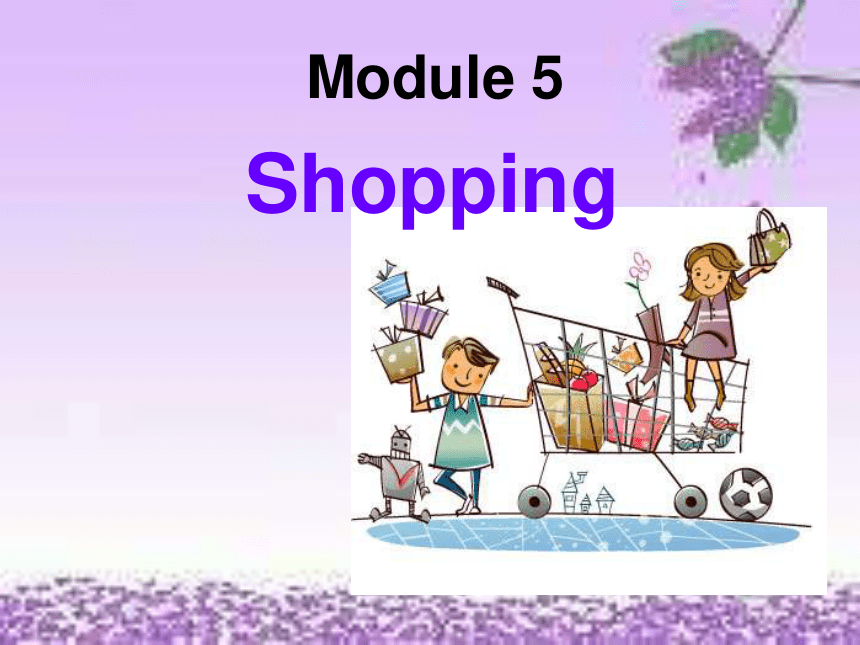
|
|
| 格式 | zip | ||
| 文件大小 | 1.8MB | ||
| 资源类型 | 教案 | ||
| 版本资源 | 外研版 | ||
| 科目 | 英语 | ||
| 更新时间 | 2013-03-12 00:00:00 | ||
图片预览

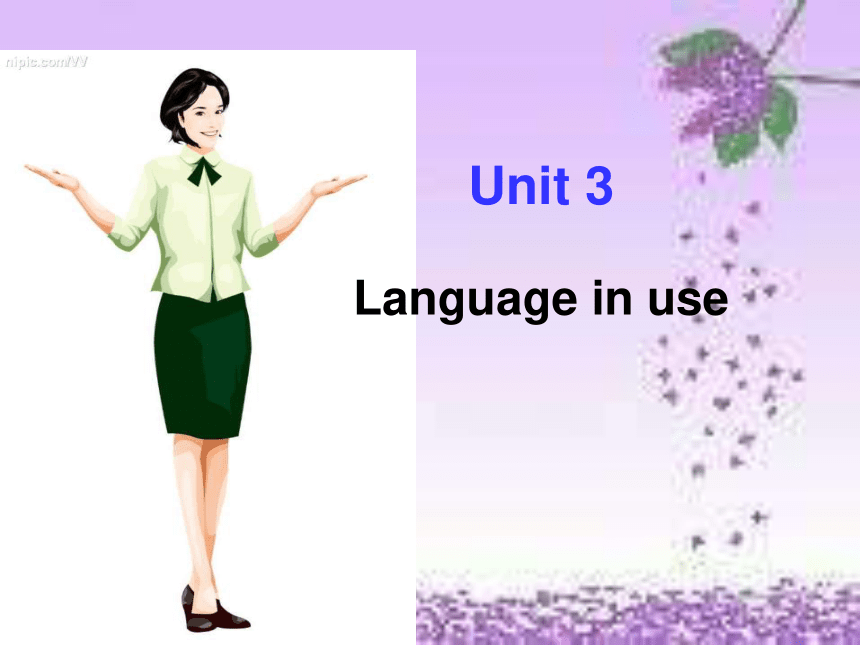


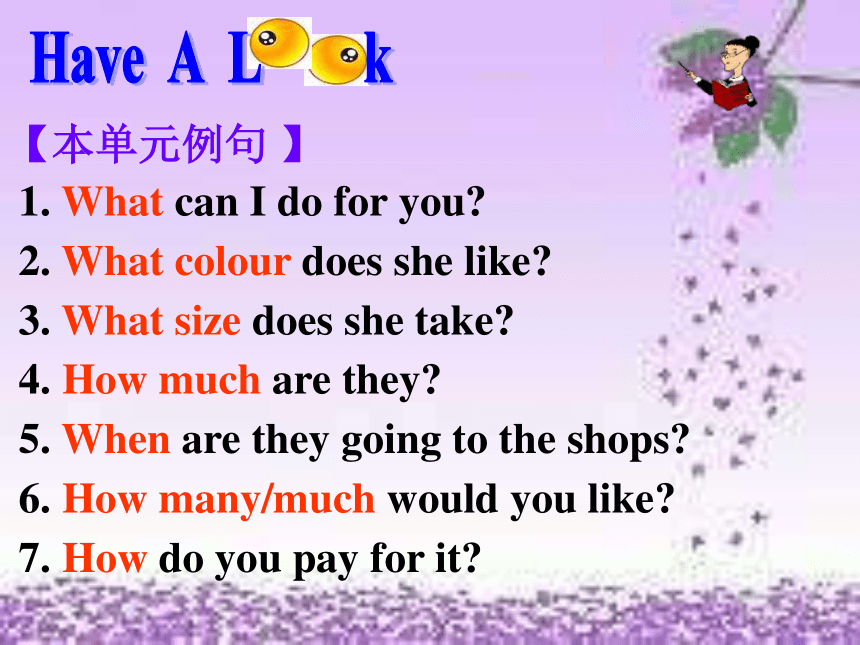

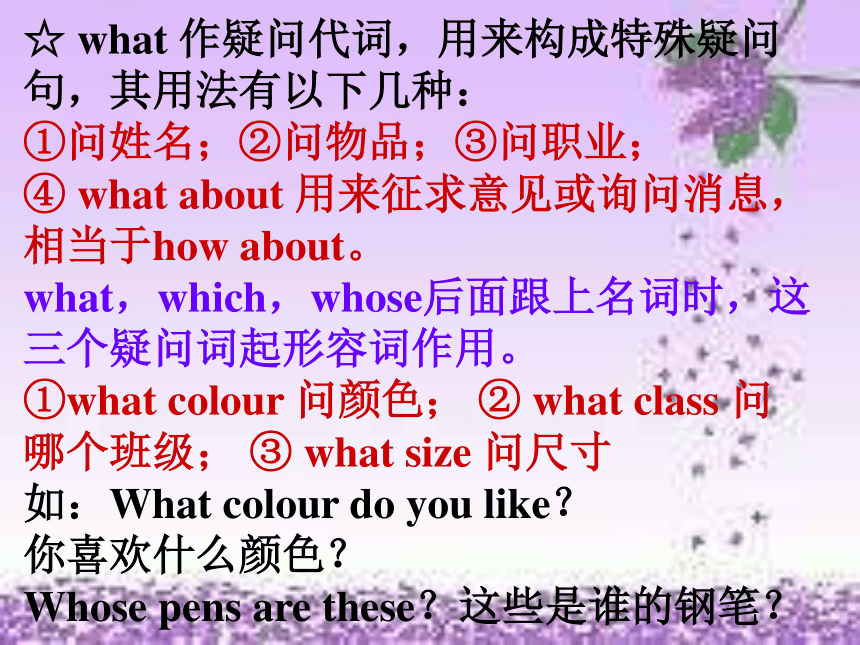

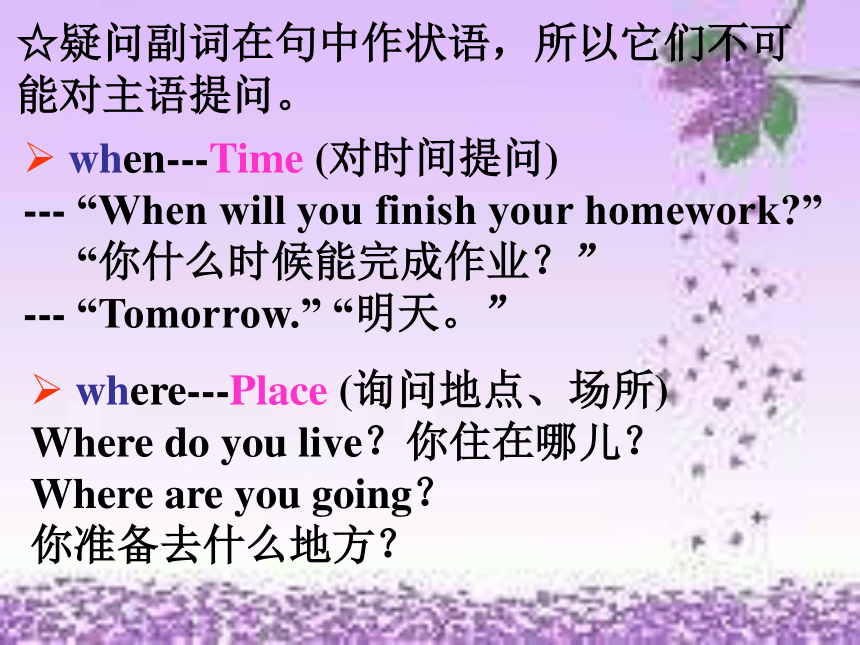
文档简介
课件28张PPT。Module 5ShoppingUnit 3
Language in useTo learn to use Wh-questions
and How many/much…?Objective语法讲解建议采用归纳法,如尽可能多的呈现一些相关例句,或可让学生从已学课文中找相应例句,引导学生试着从所观察到的语言现象中总结出语言规则和语法规律。【本单元例句 】 What can I do for you?
What colour does she like?
What size does she take?
How much are they?
When are they going to the shops?
How many/much would you like?
How do you pay for it?Have A L k首先,什么样的疑问句是特殊疑问句呢?特殊疑问句是指以who(谁),what(什么),where(哪里),why(为什么),how(怎样)等词开头的疑问句。回答特殊疑问句时不能用yes或no,用降调。我们通常把疑问词分为三类。
疑问代词:what,who,which,whose,whom 疑问形容词:what(which,whose)+名词
疑问副词:when,where,why,how ☆ what 作疑问代词,用来构成特殊疑问句,其用法有以下几种:
①问姓名;②问物品;③问职业;
④ what about 用来征求意见或询问消息,相当于how about。
what,which,whose后面跟上名词时,这三个疑问词起形容词作用。
①what colour 问颜色; ② what class 问
哪个班级; ③ what size 问尺寸 如:What colour do you like? 你喜欢什么颜色? Whose pens are these?这些是谁的钢笔? who---Person (对人提问)
--- “Who will visit you tomorrow?”
“明天谁来看你?”
--- “My father.” “我爸爸。”
--- Who was with you in Los Angeles?
在洛杉矶你和谁在一起?
--- My parents.
我的父母。 when---Time (对时间提问)
--- “When will you finish your homework?”
“你什么时候能完成作业?”
--- “Tomorrow.” “明天。” where---Place (询问地点、场所)
Where do you live?你住在哪儿? Where are you going?
你准备去什么地方? ☆疑问副词在句中作状语,所以它们不可
能对主语提问。 why---Reason (对原因提问)
--- “Why are you late?”
“你为什么迟到?”
--- “Because I missed the bus.”
“因为我没赶上公共汽车。”how引导的疑问句:可分为两类 a.“How…?”how可单独地置于疑问句的句首。 询问如何地做某事即做某事的方法、手段及健康、天气…… How do you go to school?(问方式) I go to school by bus.我坐公共汽车。 How are you?(问健康)你身体怎样? I’m fine. Thank you!我很好。谢谢你。 How is the weather today?(问天气) 今天天气如何? b:How +形容词(副词)~? 询问年龄、身高、数量、次数、距离……
☆how many 和how much都可用于询问
物品的数量,意为“多少”。how many后
接可数名词复数,how much后接不可数
名词。另外,how much还可用来询问价
格。
How much are they?We use ‘Wh-’ questions to ask for information about someone or something.1
2
3
4Work in pairs. Look at the picture. Ask and answer.-- What size do you take?
-- Size M.-- How much are the eggs?
-- Ten yuan a kilo. -- How much is the beef?
-- Fifty yuan a kilo. -- What colour do you like?
-- Blue.CheckMatch the sentences in Column A with the sentences in Column B. d 2. b 3. h 4. a
5. e 6. f 7. c 8. gCheckComplete the sentences with how much or how many.1 __________lemons would you like?
2 __________ kilos of sausages do you want?
3 __________ coffee do you want?
4 __________ boxes of strawberries do you
want?
5 __________ meat shall I buy?
6 __________ milk have you got?How muchHow manyHow muchHow muchHow manyHow manyCheckWork in pairs. Write a shopping list for a school picnic.◆What food do you need?
◆ What drinks do you need?
◆ How much/many do you need?Compare your list with your classmates’.◆Find out about your classmates’ lists.
◆ Add more things to your list.
I. 根据句意,用恰当的疑问词及相关短语完成对话。
1. — ______ is your name?
— Li Daming.
2. — _________ is the pen?
— It’s red.
3. — _________ are you in?
— I’m in Class 3.
4. — ________ does she take?
— Size M.
5. — _____ are you?
— I’m a student. WhatWhat colourWhat classWhat sizeWhatQuiz6. — My gloves are black. _________ yours?
— Mine is red.
7. — __________ tomatoes do you want to
buy?
— Three.
8. —__________ beef do we need?
— One kilo.
9. — ________ books are there on the desk?
— About ten.
10. — __________ is that pen?
— It’s five yuan. What aboutHow manyHow muchHow manyHow muchⅡ. 根据要求完成下列各小题。
1. Kate will spend ten yuan on the book.
(改为同义句)
Kate will ____ ten yuan _____ the book.
2. 请稍等一会!(翻译成英语)
_____________________________
3. I want to swim because it is very hot.
(对划线部分提问)
_______ _____ you want to swim? pay forPlease wait a minute! Why do4. The girl likes blue and red.
(对划线部分提问)
_______ ________ does the girl like?
The oranges are ten yuan a kilo.
(对划线部分提问)
________ ________ are the oranges? What colourHow muchⅢ. 从方框中选择适当的句子完成对话。
A: (1)________
B: Yes, please. I want some meat. How
much is it?
A: 24 yuan a kilo. (2)________
B: A kilo.
A: OK. (3)________
B: Apples. How much are they?
A: (4)________ Now 4 yuan a kilo.
B: Two kilos, please.
A: OK. That is 32 yuan in all (总共).
B: (5)________
A: Thank you! CBDAEA. What else do you want?
B. Can I help you?
C. Here’s the money.
D. How much do you want?
E. They are half price. 1. To preview Unit 1, Module 6
2. To practise the vocabularyPreviewHomeworkReview the grammar focus we have learned in this module.
and How many/much…?Objective语法讲解建议采用归纳法,如尽可能多的呈现一些相关例句,或可让学生从已学课文中找相应例句,引导学生试着从所观察到的语言现象中总结出语言规则和语法规律。【本单元例句 】 What can I do for you?
What colour does she like?
What size does she take?
How much are they?
When are they going to the shops?
How many/much would you like?
How do you pay for it?Have A L k首先,什么样的疑问句是特殊疑问句呢?特殊疑问句是指以who(谁),what(什么),where(哪里),why(为什么),how(怎样)等词开头的疑问句。回答特殊疑问句时不能用yes或no,用降调。我们通常把疑问词分为三类。
疑问代词:what,who,which,whose,whom 疑问形容词:what(which,whose)+名词
疑问副词:when,where,why,how ☆ what 作疑问代词,用来构成特殊疑问句,其用法有以下几种:
①问姓名;②问物品;③问职业;
④ what about 用来征求意见或询问消息,相当于how about。
what,which,whose后面跟上名词时,这三个疑问词起形容词作用。
①what colour 问颜色; ② what class 问
哪个班级; ③ what size 问尺寸 如:What colour do you like? 你喜欢什么颜色? Whose pens are these?这些是谁的钢笔? who---Person (对人提问)
--- “Who will visit you tomorrow?”
“明天谁来看你?”
--- “My father.” “我爸爸。”
--- Who was with you in Los Angeles?
在洛杉矶你和谁在一起?
--- My parents.
我的父母。 when---Time (对时间提问)
--- “When will you finish your homework?”
“你什么时候能完成作业?”
--- “Tomorrow.” “明天。” where---Place (询问地点、场所)
Where do you live?你住在哪儿? Where are you going?
你准备去什么地方? ☆疑问副词在句中作状语,所以它们不可
能对主语提问。 why---Reason (对原因提问)
--- “Why are you late?”
“你为什么迟到?”
--- “Because I missed the bus.”
“因为我没赶上公共汽车。”how引导的疑问句:可分为两类 a.“How…?”how可单独地置于疑问句的句首。 询问如何地做某事即做某事的方法、手段及健康、天气…… How do you go to school?(问方式) I go to school by bus.我坐公共汽车。 How are you?(问健康)你身体怎样? I’m fine. Thank you!我很好。谢谢你。 How is the weather today?(问天气) 今天天气如何? b:How +形容词(副词)~? 询问年龄、身高、数量、次数、距离……
☆how many 和how much都可用于询问
物品的数量,意为“多少”。how many后
接可数名词复数,how much后接不可数
名词。另外,how much还可用来询问价
格。
How much are they?We use ‘Wh-’ questions to ask for information about someone or something.1
2
3
4Work in pairs. Look at the picture. Ask and answer.-- What size do you take?
-- Size M.-- How much are the eggs?
-- Ten yuan a kilo. -- How much is the beef?
-- Fifty yuan a kilo. -- What colour do you like?
-- Blue.CheckMatch the sentences in Column A with the sentences in Column B. d 2. b 3. h 4. a
5. e 6. f 7. c 8. gCheckComplete the sentences with how much or how many.1 __________lemons would you like?
2 __________ kilos of sausages do you want?
3 __________ coffee do you want?
4 __________ boxes of strawberries do you
want?
5 __________ meat shall I buy?
6 __________ milk have you got?How muchHow manyHow muchHow muchHow manyHow manyCheckWork in pairs. Write a shopping list for a school picnic.◆What food do you need?
◆ What drinks do you need?
◆ How much/many do you need?Compare your list with your classmates’.◆Find out about your classmates’ lists.
◆ Add more things to your list.
I. 根据句意,用恰当的疑问词及相关短语完成对话。
1. — ______ is your name?
— Li Daming.
2. — _________ is the pen?
— It’s red.
3. — _________ are you in?
— I’m in Class 3.
4. — ________ does she take?
— Size M.
5. — _____ are you?
— I’m a student. WhatWhat colourWhat classWhat sizeWhatQuiz6. — My gloves are black. _________ yours?
— Mine is red.
7. — __________ tomatoes do you want to
buy?
— Three.
8. —__________ beef do we need?
— One kilo.
9. — ________ books are there on the desk?
— About ten.
10. — __________ is that pen?
— It’s five yuan. What aboutHow manyHow muchHow manyHow muchⅡ. 根据要求完成下列各小题。
1. Kate will spend ten yuan on the book.
(改为同义句)
Kate will ____ ten yuan _____ the book.
2. 请稍等一会!(翻译成英语)
_____________________________
3. I want to swim because it is very hot.
(对划线部分提问)
_______ _____ you want to swim? pay forPlease wait a minute! Why do4. The girl likes blue and red.
(对划线部分提问)
_______ ________ does the girl like?
The oranges are ten yuan a kilo.
(对划线部分提问)
________ ________ are the oranges? What colourHow muchⅢ. 从方框中选择适当的句子完成对话。
A: (1)________
B: Yes, please. I want some meat. How
much is it?
A: 24 yuan a kilo. (2)________
B: A kilo.
A: OK. (3)________
B: Apples. How much are they?
A: (4)________ Now 4 yuan a kilo.
B: Two kilos, please.
A: OK. That is 32 yuan in all (总共).
B: (5)________
A: Thank you! CBDAEA. What else do you want?
B. Can I help you?
C. Here’s the money.
D. How much do you want?
E. They are half price. 1. To preview Unit 1, Module 6
2. To practise the vocabularyPreviewHomeworkReview the grammar focus we have learned in this module.
同课章节目录
- Module 1 Lost and found
- Unit 1 Whose bag is this?
- Unit 2 Are they yours?
- Unit 3 Language in use
- Module 2 What can you do ?
- Unit 1 I can play the piano
- Unit 2 I can run really fast
- Unit 3 Language in use
- Module 3 Making plans
- Unit 1 What are you going to do at the weekends?
- Unit 2 We're going to cheer the players.
- Unit 3 Language in use
- Module 4 Life in the future
- Unit 1 Everyone will study at home
- Unit 2 Every family will have a small plane.
- Unit 3 Language in use
- Module 5 Shopping
- Unit 1 What can I do for you?
- Unit 2 You can buy everything on the Internet
- Unit 3 Language in use
- Module 6 Around town
- Unit 1 Could you tell me how to get to the Nationa
- Unit 2 The London Eye is on your right.
- Unit 3 Language in use
- Revision module A
- Module 7 My past life
- Unit 1 I was born in a small village.
- Unit 2 I was born in Quincy.
- Unit 3 Language in use
- Module 8 Story time
- Unit 1 Once upon a time….
- Unit 2 Goldilocks hurried out of the house.
- Unit 3 Language in use
- Module 9 Life history
- Unit 1 He left school and began work at the age of
- Unit 2 He decided to be an actor.
- Unit 3 Language in use
- Module 10 A holiday journey
- Unit 1 What did you do?
- Unit 2 This morning we took a walk.
- Unit 3 Language in use
- Module 11 Body language
- Unit 1 They touch noses!
- Unit 2 Here are some ways to welcome them.
- Unit 3 Language in use
- Module 12 Western music
- Unit 1 It's so beautiful!
- Unit 2 Vienna is the centre of European classical
- Unit 3 Language in use
- Revision module B
